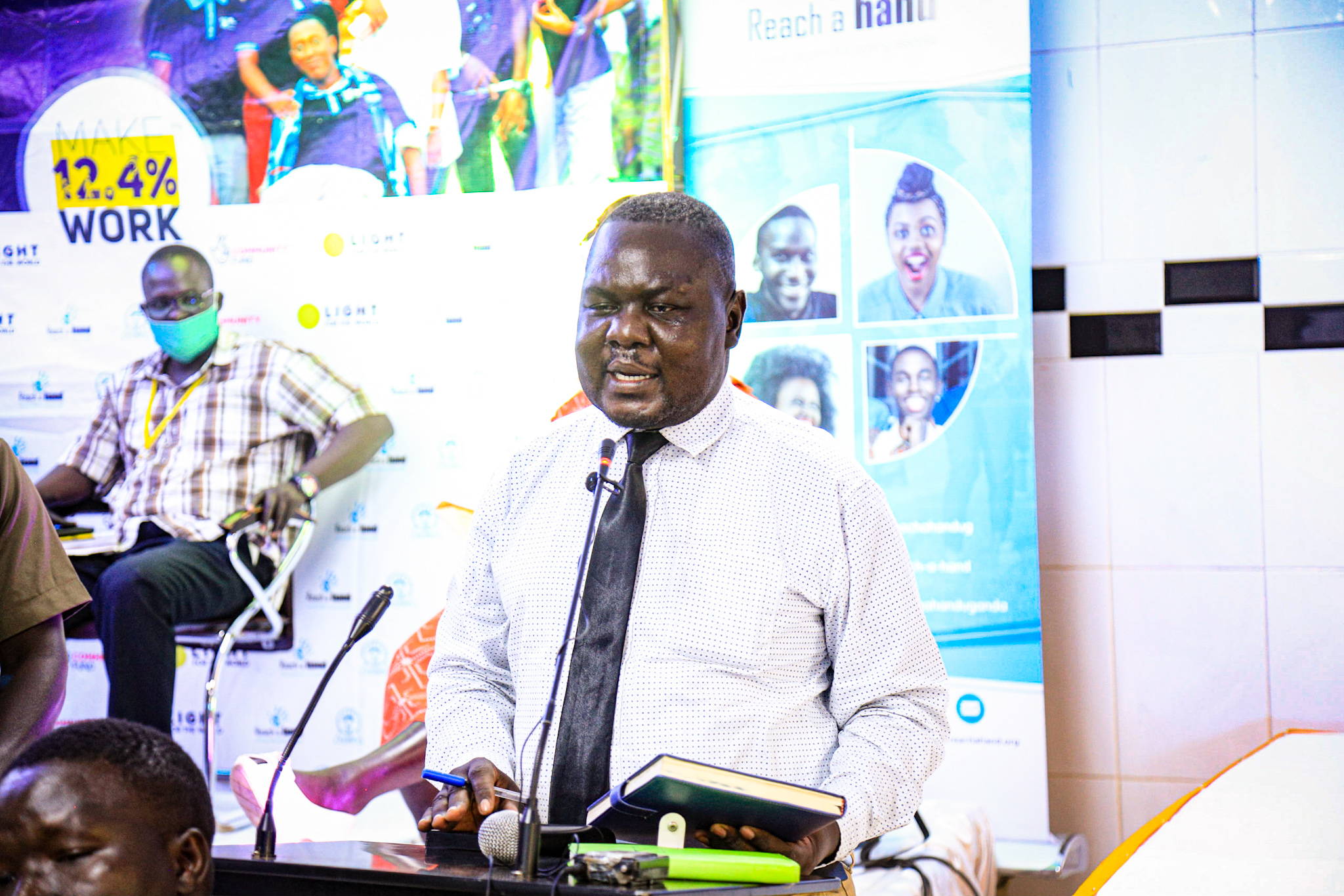How can we support young people with disabilities in improving their livelihoods and change their health-seeking behaviors?
According to Zahara Nampewo (2017), Disability is a condition with significant and long-lasting effects on an individual’s daily life and activities, and which affects their intellectual, sensory, or mental healthy functionality. In Uganda, at least four out of every 25 persons have a certain form of disability.
Persons with disabilities (PWDs) in Uganda makeup 12.4% of the total population and want to be productive members of society. However, due to several factors, this is not the reality on ground. According to the Disability Demographics in Uganda, the Northern Region of the country has the highest incidence of disability currently at 4.4%.
Although the COVID-19 pandemic affected all people, its effects on PWDs were even greater. COVID-19 affected PWDs in several areas including their livelihoods, access to social and health services in Uganda, especially Sexual and Reproductive Health and Rights (SRHR), and Gender-Based Violence (GBV).
As a way of understanding the challenges that young PWDs are facing in Northern Uganda, on 15th March 2021, together with Reach A Hand Uganda we hosted a Disability Inclusion Share 101 to discuss the “Impact of COVID-19 on Young People With Disabilities” at Kakanyero Hotel in Gulu District.
The discussion aimed at changing the community’s perceptions about disability, raising awareness on existing programs and opportunities for PWDs like entrepreneurship and skills development, and normalizing the conversations around persons with disabilities’ access to sexual reproductive health rights, information, and services.
The UN Convention on the Rights of Persons with Disabilities that was ratified by Uganda in 2008, guarantees them the right to access the same range, quality, and standard of free or affordable health care. However, evidence shows that PWDs in Uganda are finding several challenges when it comes to accessing and utilizing essential SRH services.
Some of these challenges include lack of information about HIV/AIDS and testing, lack of disability-friendly educational materials, stigmatizing treatment from providers, and physical inaccessibility of hospital infrastructure. More to that, some cultural beliefs still regard PWDs, especially women, as not sexually active which in turn makes them excluded from sexuality talks.
While giving the keynote address, the Chairman Gulu Disabled Persons Union, Geoffrey Allii highlighted that in line with access to SRH, when it comes to receiving access to health services, PWDs face challenges such as lack of adjustable beds in delivery wards, communications barriers, and negative attitude towards them.
He said,
“Due to communication barriers, young PWDs have also missed out even in school since they do not have sign language and braille options. This results in lack of skills and thus affecting their livelihoods.”
During the panel discussion, the female Councillor Gulu District Aciro Teddy points out that young disabled girls are violated but have no one to report to since police ask them to handle the challenges at home.
Anicia Filda, the Center Manager Reproductive Health Uganda – Gulu, during her deliberations articulated several interventions to address the issues young PWDs face when it comes to accessing timely SRH services including:
- Health workers must be trained to handle service delivery for PWDs
- Outreaches should be brought closer to the young PWDs
- Health workers need values clarification attitude training
Promoting inclusive societies and opportunities for people with disabilities means improved access to basic education and relevant training to join the labor market with adaptations as needed.
As a way to support in making sure the PWDs have a voice, the RDC confirmed having radio airtime at Rupiny FM and committed to using part of his airtime to air out issues on PWDs like their timely access to SRH and inclusion in livelihoods programs.

He said,
“With the free airtime I have on Rupiny FM, the Disability Union leaders should identify two PWDs who can accompany me to discuss issues affecting them. This is a great opportunity to ensure that people know how best to treat PWDs around them.
Aciro also committed to sensitizing women and girls with disabilities across the Northern region on referral pathways since they are highly affected by issues like rape but cannot speak up.
Empowering PWDs having good health-seeking attitudes is one of the important aspects CSO’s, government bodies, and local leaders need to put into consideration when it comes to ensuring that young PWDs have access to relevant and timely SRH services. But the key question arising is: , What can be done to change the attitudes and health-seeking behaviors of young PWDs?

